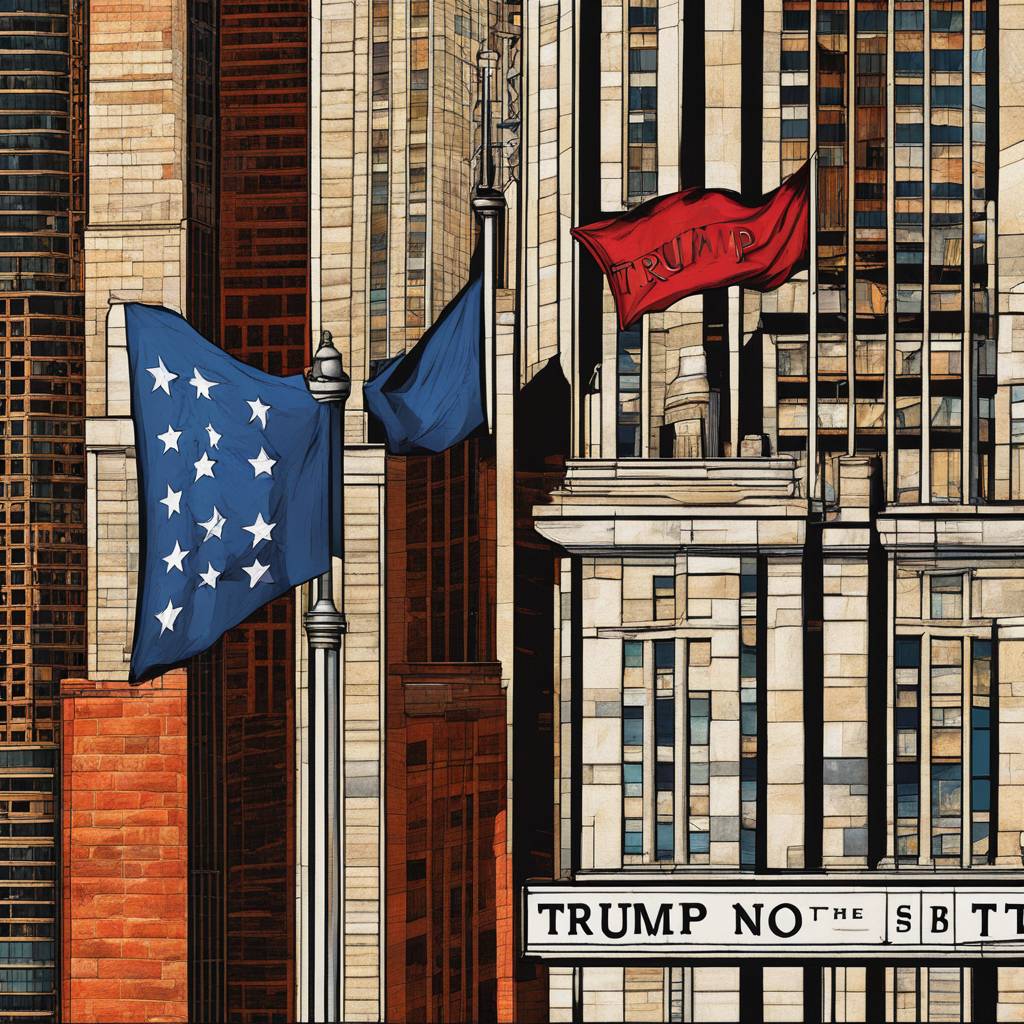Former President Donald Trump is facing the possibility of forfeiting his New York properties and cash to state authorities after failing to secure a $464 million appeals bond to avoid paying a half-billion-dollar penalty in a civil fraud judgment against him. Trump’s lawyers have stated that securing the bond has been a “practical impossibility” as many bond companies refused to consider it due to its magnitude. Unless Trump can obtain the appeals bond before March 25, the New York Attorney General’s office plans to collect from him, potentially initiating actions to freeze and seize his assets.
Legal experts believe that Trump is in trouble as he lacks the cash to pay for the appeals bond. If he fails to obtain the bond or a favorable ruling from appellate judges, the Attorney General’s office could swiftly seize control of Trump’s bank accounts, brokerage accounts, and real estate holdings. The process of seizing Trump’s property would involve putting liens on his assets and selling them through auctions. Trump’s other creditors and tax authorities owed money by Trump may also get involved in demanding what they are owed, creating further complications in the process.
The Attorney General may choose to start by liquidating unencumbered buildings and delaying the sale of other properties until the appellate process is complete. There are also mechanisms for the Attorney General’s office to extract cash flow from Trump’s properties by taking payments from tenants leasing space from him. Trump’s ability to service his massive debt pile, which includes $780 million in mortgages coming due over the next five years, could be further imperiled if cash flow is extracted from his properties.
While Trump could theoretically avoid surrendering assets to New York law enforcement by mortgaging or selling off some of his assets to post the bond, he is currently appealing the judgment against him, hoping to avoid selling any properties. Trump argues that he should not have to put up any money until the end of the appeal. The panel of appellate judges could potentially lower the bond amount or pause the enforcement of the civil penalty while Trump appeals the judgment, a process that could take up to a year.
Overall, the situation puts a shadow over Trump’s ability to do business, with concerns about who would trust a person facing such legal challenges. The outcome of the appeals process and seizure of his assets remains uncertain, with potential complications arising from other creditors and tax authorities seeking their share. Trump’s real estate empire in Manhattan and his cash holdings are at risk as he navigates this legal battle with the New York authorities.


